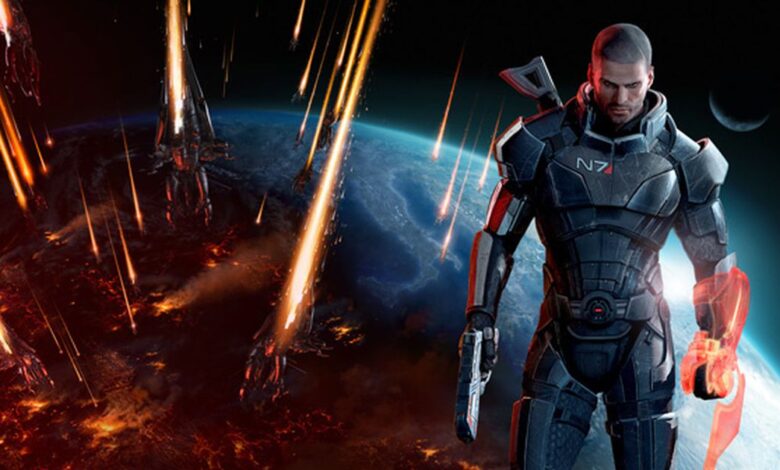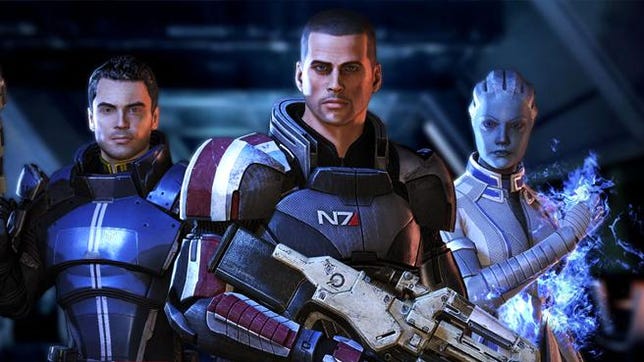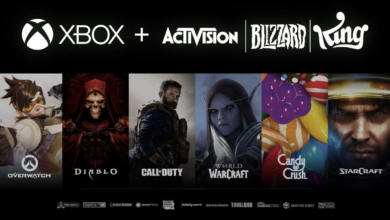Mass Effect’s ending changed the internet for the worse, and we’re still trying to recover

[ad_1]
Mass Effect 3’s ending resulted in intense online discourse.
BioWare
In the world of Mass Effect, one decision can impact the destiny of an entire universe.
At least that’s the promise: to allow players to become partners in their own virtual destiny, to let them help craft and shape a galaxy-size narrative by the power of their own choices. Mass Effect inspired an entire generation of gamers with that promise.
But then, in 2012, it all seemed to fall apart.
Because 2012 brought with it Mass Effect 3, the conclusion to the Mass Effect trilogy. Saying Mass Effect 3’s ending disappointed fans of the series is like saying Garrus is a minor fan of calibrations.
No, fans weren’t just disappointed, they were incensed. The ending, which many called inconsistent and contradictory, made the fatal mistake of breaking Mass Effect’s initial, cast-iron promise. It rendered players’ choices inconsequential.
The details of the ending, for the purposes of this article, aren’t all that important. Key point: People were extremely upset. (If you want to dig deeper into the games themselves, the remastered trilogy collection Mass Effect: Legendary Edition is available from Friday.)

Publisher Electronic Arts faced criticism over the way it finished the otherwise celebrated game.
Electronic Arts
“I remember about a week or so after we had launched [the game], we’d seen all these excellent critical reviews,” remembered then-BioWare General Manager Aaryn Flynn. “Then all of a sudden people were saying, ‘I felt the ending was weak.’ And someone would say, ‘Yeah, I thought it was actually pretty bad.’ And someone else would say, ‘I hated that ending.’ It just snowballed like crazy, and pretty soon the whole issue was on fire.”
On fire is an understatement. Post release, the Mass Effect 3 discourse evolved into an out-of-control blazing inferno that threatened to burn the internet to a blackened crisp.
There was a petition to change the ending, of course. Today, online petitions are extremely normal, but back then a petition was a big deal. Mass Effect, you could argue, birthed the online petition as a mainstream device of outrage.
One fan made an official complaint to the Federal Trade Commission, another complained to the Advertising Standards Authority, saying the game was guilty of false advertising. One fan took the issue to the Better Business Bureau, which agreed the game falsely advertised complete control over its final outcome.
BioWare ran a poll on its website asking fans if they were happy with the ending, and well over a million people voted. Only 2% said yes.
It was a wild moment in time.
Nowadays, this sort of obnoxious overreaction is commonplace. But back then this visible, visceral reaction — and the manner in which entire online groups mobilized around the issue — was a new phenomenon.
And unfortunately, EA and BioWare responded in the worst possible way: They made their own galaxy-defining choice. EA and BioWare sacrificed their authorial intent and rewrote the game’s ending, giving in to the baying mob.
A precedent had been set. The internet became keenly aware that if it didn’t like a work of fiction, or took issue with a creative decision, that work could be altered, that decision unmade. By pure force of will and just… noise. A savage, obnoxious wail that threatened to consume all light and reason.

Rise of Skywalker undid some of the most interesting sections of The Last Jedi.
Disney
Storytelling by committee — or by 4Chan thread — was about to begin in earnest. We’re seeing the results of that choice now.
Take Star Wars and The Rise of Skywalker. After fans raged against The Last Jedi — a movie that challenged established Star Wars tropes and pushed back against fan expectations — the creatives behind The Rise of Skywalker also buckled, pandering to fans in the worst possible way. Removing the agency of characters fans didn’t like, undoing bold plot choices. The Rise of Skywalker transformed the Star Wars universe into something far less challenging and, ultimately, turned it into something banal.
Just like in Mass Effect, where one single dialogue choice can ultimately have galaxy-spanning consequences further down the track, the tiniest decisions can have the largest impacts. The controversy surrounding the ending of Mass Effect, and the toxicity with which some fans campaigned against that ending, was — for many — prototypical of Gamergate, a movement that was, in and of itself, prototypical of dangerous online groups like QAnon. In all cases, large amounts of outrage generated from relatively obscure corners of the internet grew and took on lives of their own.
You could conceivably draw a straight line between video game outrage in 2012 and the broader challenges we face with online mobs today. That’s the bizarro universe we currently occupy.
Mass Effect was just the canary in the coal mine. The first and most visible example of a niche group using online platforms to amplify a singular toxic message. Now, in 2021, we’re grappling with the consequences of the comments section made flesh. Mass Effect was just swept along with the rising tide, taking us — ultimately — to the strangest of places: a universe where we’re no longer sure if our choices still matter.
[ad_2]
Source link






